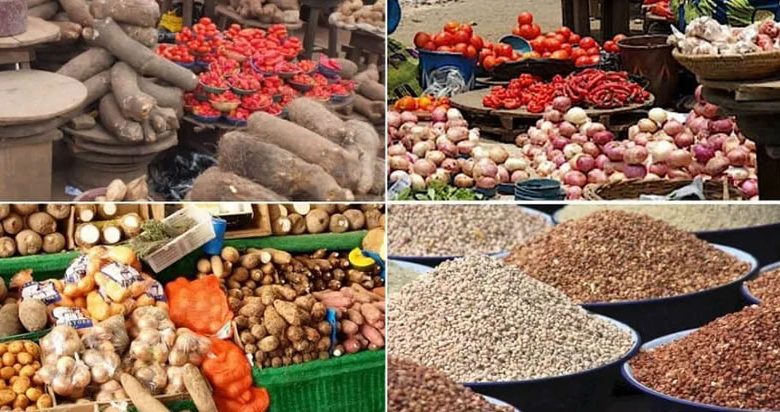Food Prices Record Slight Decline in Abuja Markets

Prices for staple foods, particularly rice, are starting to slightly decline in a number of markets for residents of the Federal Capital Territory (FCT), Abuja.
According to reports, research from a number of markets shows that although grain prices, especially those of rice, have decreased in comparison to early-year figures, the price of cooking necessities like oil, tomatoes, fish, and meat is still very high.
Many, however, think that the slight decrease is insufficient to alleviate the financial burden that the majority of households are currently experiencing.
A 50kg bag of rice at Kubwa Market used to sell for between ₦88,000 and ₦90,000 in January, but depending on the brand, it can now be purchased for as little as ₦75,000.
In a similar vein, a 25 kg bag that used to cost about ₦43,000 is now sold for ₦37,500 and less.
Prices are even more favorable in Nyanya Market, another satellite town, according to a Daily Sun report. Depending on the brand, a 50kg bag of rice that used to sell for ₦90,000 to ₦93,000 can now be purchased for ₦70,000 to ₦72,000.
In the meantime, rice prices continue to be comparatively higher in Wuse Market and other city center areas. While the 25kg version is priced between ₦39,000 and ₦40,000, a 50kg bag now costs between ₦78,000 and ₦80,000, down from ₦92,000 in January.
Ingredients Still Out of Reach
Residents claim that the cost of cooking ingredients is still excessively high, even with the decline in grain prices.
“It is a relief even though the reduction is not significant. “People are suffering,” Jabi civil servant Oluchi Benson said.
“They have better prices and measurements, so I travel all the way to Mandala to buy food.”
While grains may be less expensive, other things have become luxuries, according to Christy Okoye, a Kubwa resident.
“The real problems are fish, oil, and tomatoes. Once considered the “protein of the poor,” iced fish is now considered a luxury. Compared to fish, beef is less expensive. In some places, a kilogram of beef costs more than ₦7,000, and you won’t find any fish for less than ₦1,500, according to Okoye, who was quoted by the Daily Sun.
Mama B, a trader in Utako Market, admitted that although rice prices have decreased, families are now having difficulty finding basic food diversity.
Read Also: Breaking: Court Throws Out Money Laundering Case Against Fayose
Will we just eat rice? What about our kids’ snacks, protein, or oil? Noodles and biscuits are among the items that most families have forgotten. “Now that I can afford it, I make pancakes and zobo (hibiscus drink) for my kids,” she said.
Maria Ayo, a Dutse Alhaji resident and mother of four, described her coping mechanism. “I stopped buying foodstuffs in small quantities,” she said. My family has been able to manage better since I started using the contribution method. However, fish, yams, meat, and eggs are still too costly. To raise the standard of living for the typical Nigerian, the government must intervene.
Traders Assign Rice Contributions to Slower Sales
A trader in Wuse Market named Mallam Aliyu expressed dissatisfaction over the decline in demand for rice since the Christmas season, blaming it on the common practice of rice contribution groups, in which families pool money to purchase large amounts of rice at the end of the year.
“Many families are still eating from what they got during last year’s contribution,” Aliyu stated. Sales have decreased as a result.
Although there is some hope due to the slow decline in rice prices, Abuja residents maintain that the high cost of cooking necessities and protein sources still makes daily living difficult.
According to the report, the general consensus is still that most families will still find it difficult to feed themselves adequately until there is a more widespread decrease in the cost of all necessary food items, regardless of what the statistics indicate.





